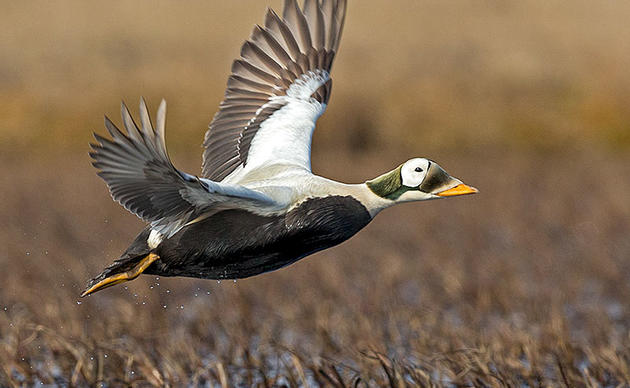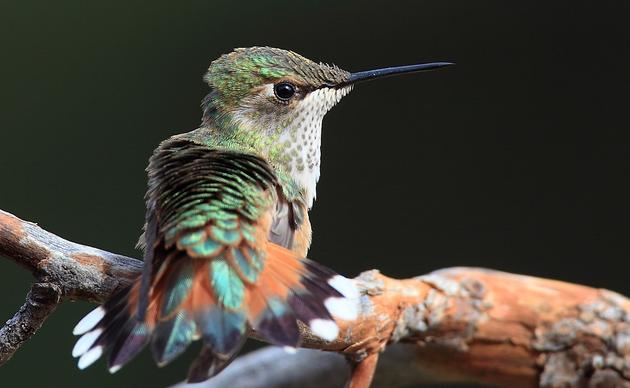The 1918 Migratory Bird Treaty Act (MBTA) is considered America’s most important bird protection law. The international conservation partnership between the United States, Canada, and Mexico is widely regarded as the most successful partnership for bird conservation in the world.
The MBTA protects nearly all of our country’s native birds, including species that are not hunted and species that are. This law is vital for the conservation of more than 1,000 species of birds, including the Sandhill Crane, Snowy Egret, and Wood Duck, especially as populations have declined by 3 billion birds since 1970 across North America. It has resulted in North American waterbirds and waterfowl being the healthiest group of birds on the continent, according to the 2025 report by the North American Bird Conservation Initiative.
Conservation dollars raised under the MBTA have mostly come from the sale of Duck Stamps, which waterfowl hunters are required to purchase. Duck Stamp sales have provided over $1.1 billion since 1934, including approximately $38 million annually in recent years through the sale of about 1.5 million stamps. Funds from Duck Stamps have resulted in the conservation of more than 6 million acres of public land.
But the success of the MBTA relies on hunters and other partners in conservation following the law, which prohibits “unauthorized take” of hundreds of migratory bird species. The MBTA protects birds from avoidable deaths caused by large-scale and industrial activities. These protections from “unauthorized take” or “incidental take” have successfully been implemented by both Democratic and Republican administrations for decades. They have saved millions of birds while helping maintain an annual $279 billion economic impact from birding, a pastime that 96 million Americans partake in and invest in every year.
Between the 1970s and 2017, unauthorized take was not only defined as hunting violations, but also as mortality caused by events such as the Deepwater Horizon oil spill. Fines from unauthorized take not related to hunting result in about $15 million annually for conservation, and these fines incentivize best practices by industry to minimize this take.
In 2017, the Trump administration argued that unauthorized take under the MBTA should be limited to intentional killing. That argument was overturned in 2020 when U.S. District Judge Valerie E. Caproni wrote: “If the Department of the Interior has its way … migratory birds that delight people and support ecosystems throughout the country will be killed without legal consequence.”
Despite the 2020 ruling, on February 28, 2025, the Department of Interior’s acting chief lawyer suspended penalties under unauthorized take for developers and others pending a review of whether these penalties should be “reinstated, modified or revoked.”
This suspension is not only inconsistent with recent precedents; it also disrupts the partnerships needed for successful conservation under the MBTA by discriminating against hunters and making them exclusively responsible for conservation and liability under the MBTA. Successful conservation of migratory birds requires that all stakeholders contribute to the common goal of sustaining birding and hunting opportunities and other recreational activities associated with healthy migratory bird populations.
“As America’s birds continue to face significant declines, now is the time to strengthen their protections,” said Marshall Johnson, chief conservation officer for the National Audubon Society. “There are practical solutions that uphold the Migratory Bird Treaty Act while also delivering the long-overdue regulatory clarity that industry needs.”
Audubon Alaska and the Alaska Chapter of Backcountry Hunters & Anglers are committed to working with decision-makers on reforms that ensure our nation’s birds receive the lasting protections they need to thrive.
Everyone should share equally in the conservation of migratory birds—birds that are an essential part of our world—and we encourage you to contact your representatives and let them know that you oppose the decision to suspend unauthorized take penalties under the MBTA.
—Dr. Mark Lindberg joined the Board of Alaska Backcountry Hunters & Anglers as the Conservation Policy Messaging Chair in 2025 after a 40-year career as a Wildlife Biologist. Mark has studied wildlife, especially waterfowl, throughout North America. He is the 2019 recipient of the U.S. Fish and Wildlife Service Threatened and Endangered Species Recovery Champion for his work on Spectacled and Steller’s Eiders and the 2022 recipient of Ducks Unlimited’s Wetland Conservation Achievement Award in research for being a steadfast advocate for science-based wildlife management.







